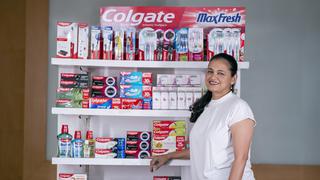With an uptick in premium products and a change in consumer purchasing behavior, Hindustan Unilever Limited (HUL) will set up two more nano factories in the Western part of the country. The fast-moving consumer goods (FMCG) major manufactures its D2C brands and premium products in these nano factories.
The company has set up six nano factories in the country that can produce product batches from 50 to 200 kg.
“With new-age channels like e-commerce, pharma and digital channels are growing 5X times compared to the traditional channels, and this has also been reflected in the channels’ contribution to HUL sales. The conventional manufacturing system has been designed for scale with large batch sizes. This is suitable for the general trade market and mass brands, but for the new channels where a high assortment is table stakes, the volume per pack will be low and the number of SKUs will be very high. That is when we introduced the concept of nano factories,” Yogesh Mishra, Executive Director of the supply chain of HUL, told businessline.
The factories have reduced the innovation lead time by 40 per cent, wastage by 30 per cent, and improved agility by 30 per cent with regards to the number of Stock Keeping Units (SKU) made by HUL. Further, the company stated that the SKUs that were manufactured once a month are now made every week.
Beneficial for D2C brands
HUL Direct-to-Consumer (D2C) brands including Simple, Love, Beauty and Planet, Acne Squad, and Find Your Happy Place are launched by the company with the help of nano factories.
“For D2C brand volumes are comparatively low with high assortment. In this case, our options are to either import from another country or establish the capability here. Nano factories are beneficial for the D2C brands on e-commerce channels as the volume is generally low and the assortment is high,” said Yogesh.
Read more: HUL net profit rises 7.9% to ₹2,481 crore in Q3
Product categories
HUL started manufacturing personal care products in nano factories and will further extend its product range. The company stated the factories can be used to make customised products and help in testing marketing innovations by the production of small test batches.
“We started with beauty and well-being products like creams, lotions, soaps, and shampoos and now we are extending to categories like home care and ice cream. Earlier, shampoos and creams were made in batches of 10,000 kg, now we have reduced it to 200-250 kg, and it can be further reduced up to 50 kg in the nano factories. We have packaging flexibility where the product can be packed into jars, bottles, and tubes – all can be packed on one line,” said Yogesh.
Read also: HUL’s Surf Excel crosses $1 billion in turnover
Factory on wheels
The nano factories are being constructed in the same location where it already has large factories so there is no issue with sourcing raw materials. But the nano factories can also be moved on wheels to new locations depending on the demand from rural, urban, or semi-rural areas for short duration.
“The nano factories set up are the skid based on mounting. If you want to shift from one place to another, you can dismantle everything and move to the new location. We have found innovative ways to set up the nano factories. Setting up a standalone nano factory can be quite expensive; hence, we have set up nano factories inside our big factories. Thus, by leveraging the fixed assets, and utilities of bigger factories to optimise the cost of setting up the nano factories,” added Yogesh.






Comments
Comments have to be in English, and in full sentences. They cannot be abusive or personal. Please abide by our community guidelines for posting your comments.
We have migrated to a new commenting platform. If you are already a registered user of TheHindu Businessline and logged in, you may continue to engage with our articles. If you do not have an account please register and login to post comments. Users can access their older comments by logging into their accounts on Vuukle.